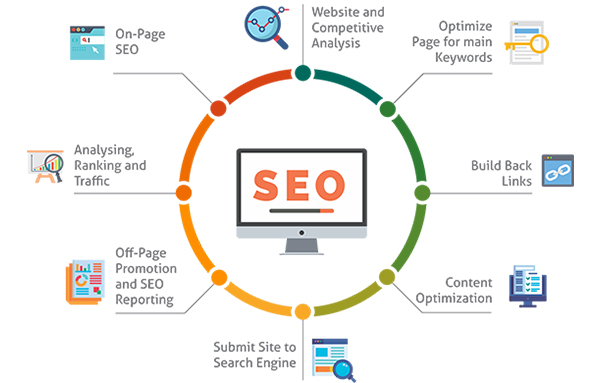The 'Do's & Don'ts' of SEO

In the ever-evolving world of digital marketing, Search Engine Optimisation (SEO) remains a cornerstone of success for websites aiming to increase visibility, drive traffic, and improve user engagement. However, the complexity and constant changes in SEO strategies can be daunting. This article aims to demystify SEO by outlining the essential do’s and don’ts, ensuring your website not only ranks well but also delivers value to your audience.
Do: Focus on User Experience (UX)
User experience is at the heart of modern SEO. Search engines, particularly Google, prioritise websites that offer fast loading times, mobile responsiveness, and intuitive navigation. A positive user experience reduces bounce rates and encourages visitors to stay longer on your site, indirectly boosting your SEO rankings.
- Do ensure your website is mobile-friendly. With over half of global web traffic coming from mobile devices, a mobile-optimised site is non-negotiable.
- Do improve page speed. Compress images, leverage browser caching, and minimise JavaScript and CSS files to enhance loading times.
Don’t: Overlook Content Quality
Content is king is a phrase that holds true in the realm of SEO. High-quality, relevant content is pivotal for ranking well in search engine results pages (SERPs).
- Don’t sacrifice content quality for keyword stuffing. Overloading your content with keywords can harm readability and penalise your site.
- Don’t duplicate content. Original content not only engages your readers but also signals to search engines that your site provides unique value.
Do: Implement a Strong Keyword Strategy
Keywords are the linchpins of effective SEO. Understanding and strategically incorporating the right keywords can significantly enhance your visibility.
- Do conduct thorough keyword research. Use tools like Google Keyword Planner or SEMrush to identify relevant keywords with high search volumes and low competition.
- Do incorporate long-tail keywords. These are longer and more specific keyword phrases that visitors are likely to use when they’re closer to a point-of-purchase or when using voice search.
Don’t: Neglect Meta Tags and Descriptions
Meta tags and descriptions play a crucial role in influencing click-through rates from SERPs. They provide search engines and users a brief overview of your page’s content.
- Don’t ignore meta descriptions. A compelling meta description can improve the likelihood of a user clicking on your result.
- Don’t use generic or duplicated meta tags. Customise your tags and descriptions to accurately reflect the content of each page.
Do: Build Quality Backlinks
Backlinks, or inbound links from other websites, are a critical ranking factor. They signal to search engines that other sites consider your content valuable and authoritative.
- Do focus on earning backlinks from reputable sites in your industry. Quality over quantity is key when it comes to link building.
- Do create shareable content. Infographics, comprehensive guides, and original research are examples of content types that are likely to earn backlinks.
Don’t: Ignore Technical SEO
Technical SEO encompasses the technical aspects of your website that affect its visibility in search engines. This includes site structure, XML sitemaps, and schema markup.
- Don’t overlook site structure. A well-organised site enables search engines to crawl and index your content more effectively.
- Don’t forget to regularly audit your site for SEO issues. Tools like Google Search Console can help identify and fix common problems like broken links or indexing issues.
Do: Keep Up with SEO Trends and Algorithm Updates
SEO is not a set-it-and-forget-it strategy. Search engines frequently update their algorithms to improve the relevance and quality of search results.
- Do stay informed about the latest SEO trends and algorithm updates. Following SEO news sites and forums can help you adjust your strategies in real-time.
- Do adapt your SEO strategies based on analytics. Use data from Google Analytics and other tools to refine your approach based on what’s working and what’s not.
Don’t: Expect Overnight Success
SEO is a long-term investment. Achieving and maintaining high rankings requires patience, persistence, and continuous effort.
- Don’t get discouraged by short-term fluctuations in rankings. SEO success is measured over months and years, not days or weeks.
- Don’t resort to black-hat SEO techniques in an attempt to quicken your success. Practices like link schemes, cloaking, and content scraping can lead to penalties from search engines.


